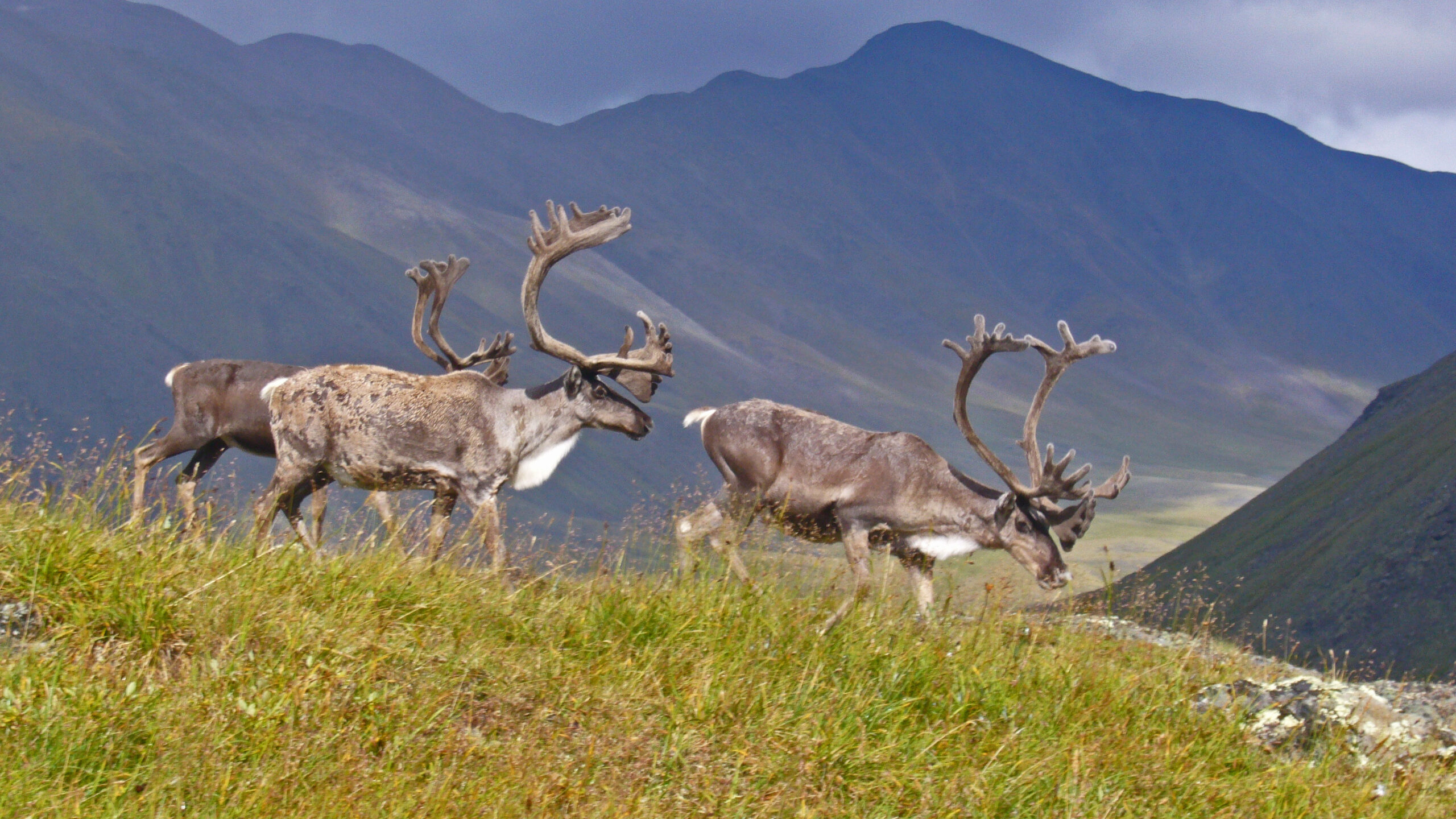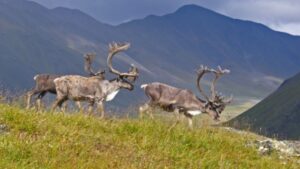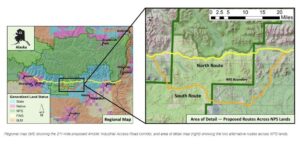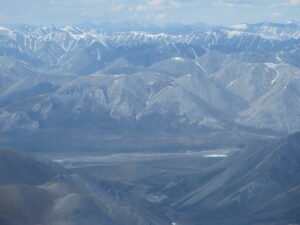
Speak out against the proposed road to Ambler

Caribou in Gates of the Arctic National Preserve.
Alaskans and Americans can speak out now against the proposed road to Ambler that would put a 211-mile road in a thriving, wild area that Alaskans depend on to support their subsistence way of life and culture.
Public meetings are taking place throughout the state, including one on Monday, Nov. 20, from 6 to 8 p.m. at the Dena’ina Center in Anchorage. Written comments can also be submitted directly to the Bureau of Land Management through Jan. 31, 2018.
The State of Alaska proposes to build a road that would cross Gates of the Arctic National Preserve and cut across one-third of the southern Brooks Range. The private industrial road would stretch the length of the Kenai Peninsula and serve only the interests of an outside Canadian mining company.
The road threatens wildlife and people
It would further threaten the Western Arctic Caribou Herd–which has been declining–and abundant sheefish, whitefish, and salmon of the Alatna and Kobuk River drainages that are key subsistence resources in the region.

Map by NPS.
The total cost of building, operating, and maintaining this project is expected to be between $844 and $906 million.
What is scoping?
The State has filed an application to build the road to Ambler. The National Environmental Policy Act (NEPA) requires federal agencies to consider all the environmental and social impacts of a proposal before issuing a permit. The Bureau of Land Management is now in the process of preparing an Environmental Impact Statement analyzing the proposed road. This statement will look at the impacts of the project.
Right now, we are at the “scoping” stage. Scoping is the first step in the NEPA process. It is the stage when BLM collects information on what it will analyze in the environmental impact statement for the project.
What should I say during a scoping meeting?
Scoping comments are your chance to bring up issues, impacts, and alternatives that you want BLM to consider. Your opinion matters; be sure to tell BLM not only that you oppose the proposed road, but also why you are concerned about the project.
For example, you could say, “I am opposed to the Road to Ambler because _____” or “I am concerned about impact to ______.”

The Brooks Range.
Here are some additional questions BLM will be gathering information on at this stage:
- How do you think the proposed road and mine would affect the region’s water, air, fish, wildlife, subsistence foods, migration routes, cultures, community health and more? What do you consider foreseeable impacts to the region if the state builds the road? Do you have other concerns about the project?
- Are there other routes that would be less damaging to people, wildlife, subsistence foods, water quality, etc.? Are there ways to design the project so that it causes less harm to people, land, water and wildlife?
- What does BLM need to study and know about when looking at its impacts? What does BLM need to know about subsistence practices or migratory patterns of fish and wildlife? What traditional ecological knowledge should BLM evaluate when looking at the impacts or developing alternatives?
Today’s Anchorage meeting is just one of a handful over the next three weeks.
Upcoming BLM meetings on the proposed road to Ambler will take place throughout Alaska: In Kobuk on Dec. 4, in Ambler on Dec. 5; in Kotzebue on Dec. 6; in Shungnak on Dec. 7; and in Evansville on Dec. 12.


